OddCameras.com
KW Patent Etui Kamera 6.5x9
The KW cameras were produced between 1919 and 1938 by KW, Kamera
Werkstätten Guthe & Thorsch, a
German manufacturer, founded by Paul Guthe and Benno Thorsch, situated
in Niedersedlitz, a suburb of Dresden. The Patent Etui cameras were
introduced in 1920 and produced until 1938. Their extremely slim case
- or Etui - was slim enough to be slipped into a pocket.They
were made in 2 formats, 6.5x9 and 9x12. As both factory owners were
jews, they sold the factory in 1938 to Charles A. Noble, a Detroit
camera maker, in a swap deal against his Detroit camera factory. Noble
changed the production lines to 35mm cameras, the new
Kamera-Werkstätten Charles A. Noble are mostly known for the
Praktiflex, a 35mm SLR, already developed under the guidance of Benno
Thorsch, which after the war became the famous Praktica.
The KW Patent Etui cameras are top level cameras with luminous lenses
and double extension. I own 3 of these, one 9x12 and 2 smaller ones.
These are the 6.5x9 models.
Lens: Zeiss Tessar 1:4.5 10.5cm (12cm), F4.5-36
Shutter:
Compur 1-1/250 B T (working)
Weight: 428gr.
Size: 123x92x30
Some photos:
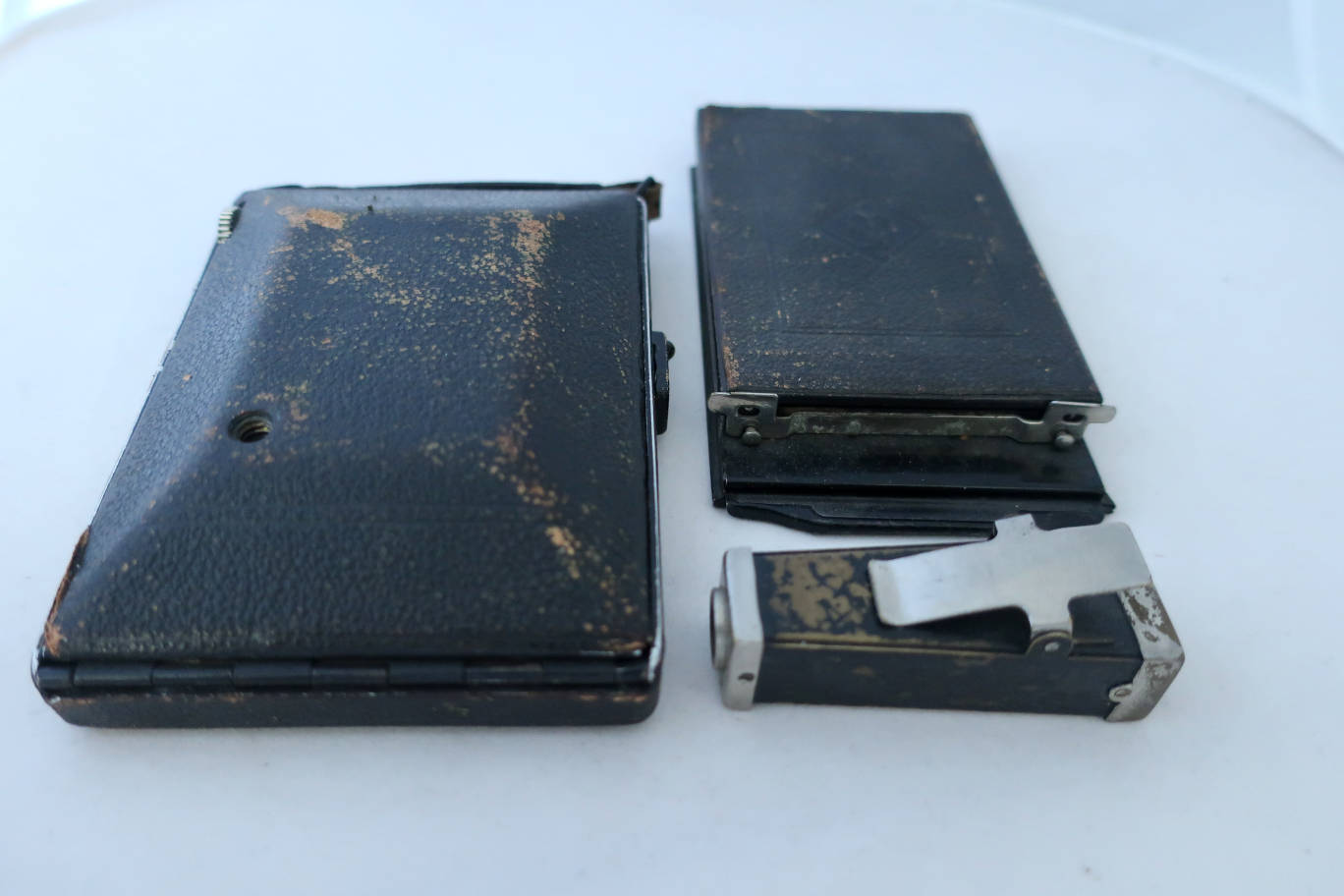
Camera, an old film pack holder and a clipsable viewer.
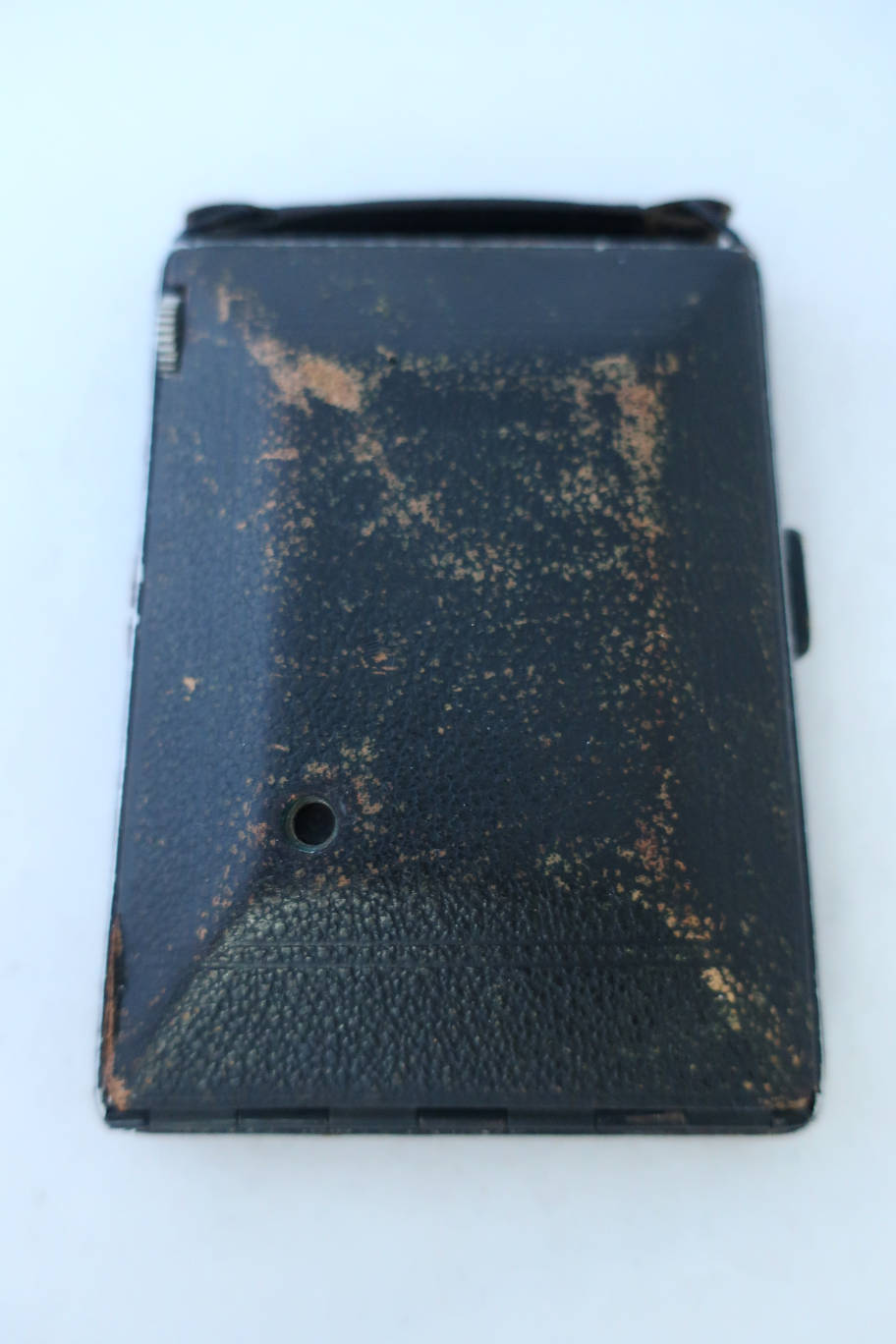
Camera closed. Tripod socket on the bed.
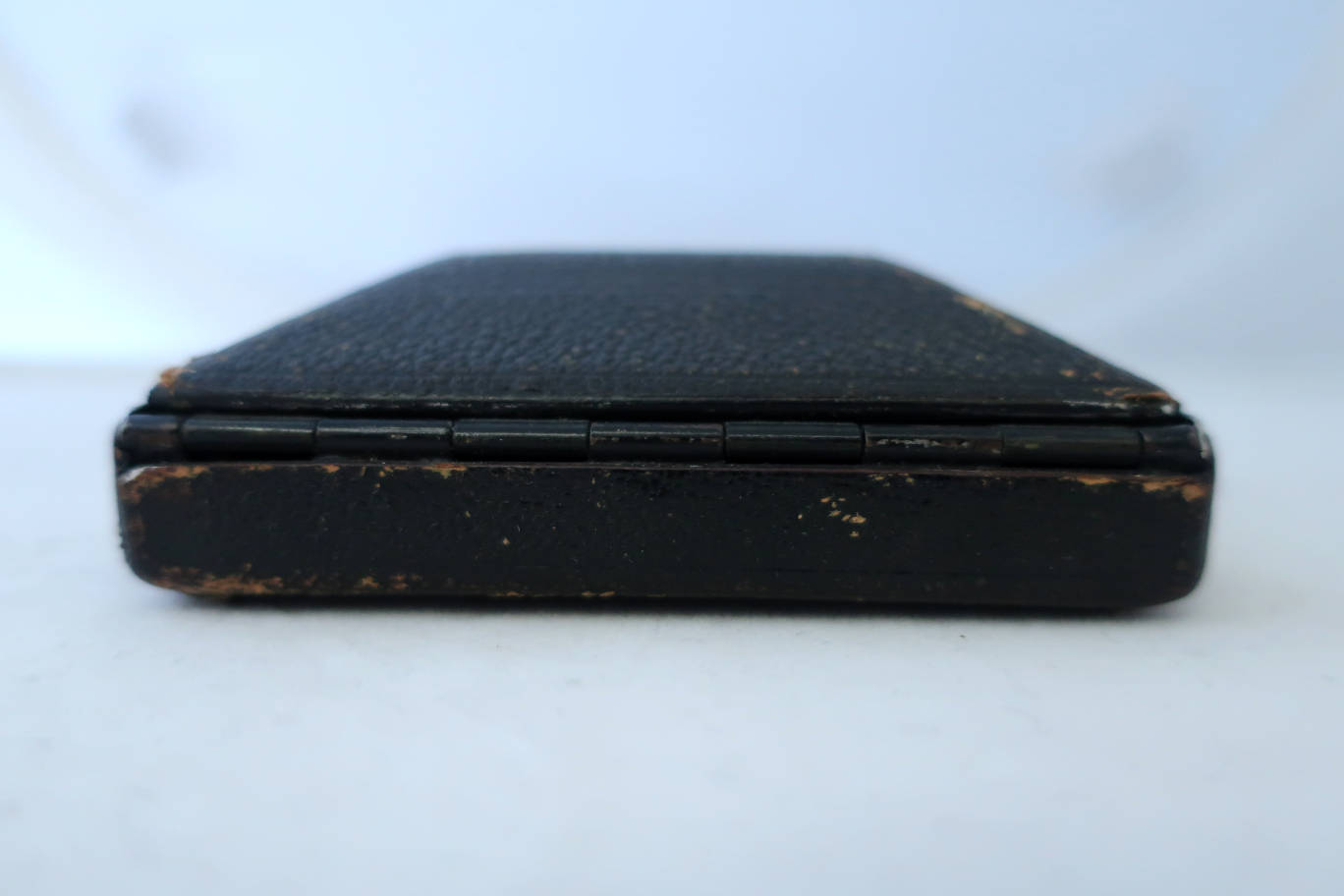
The camera is extremely flat.
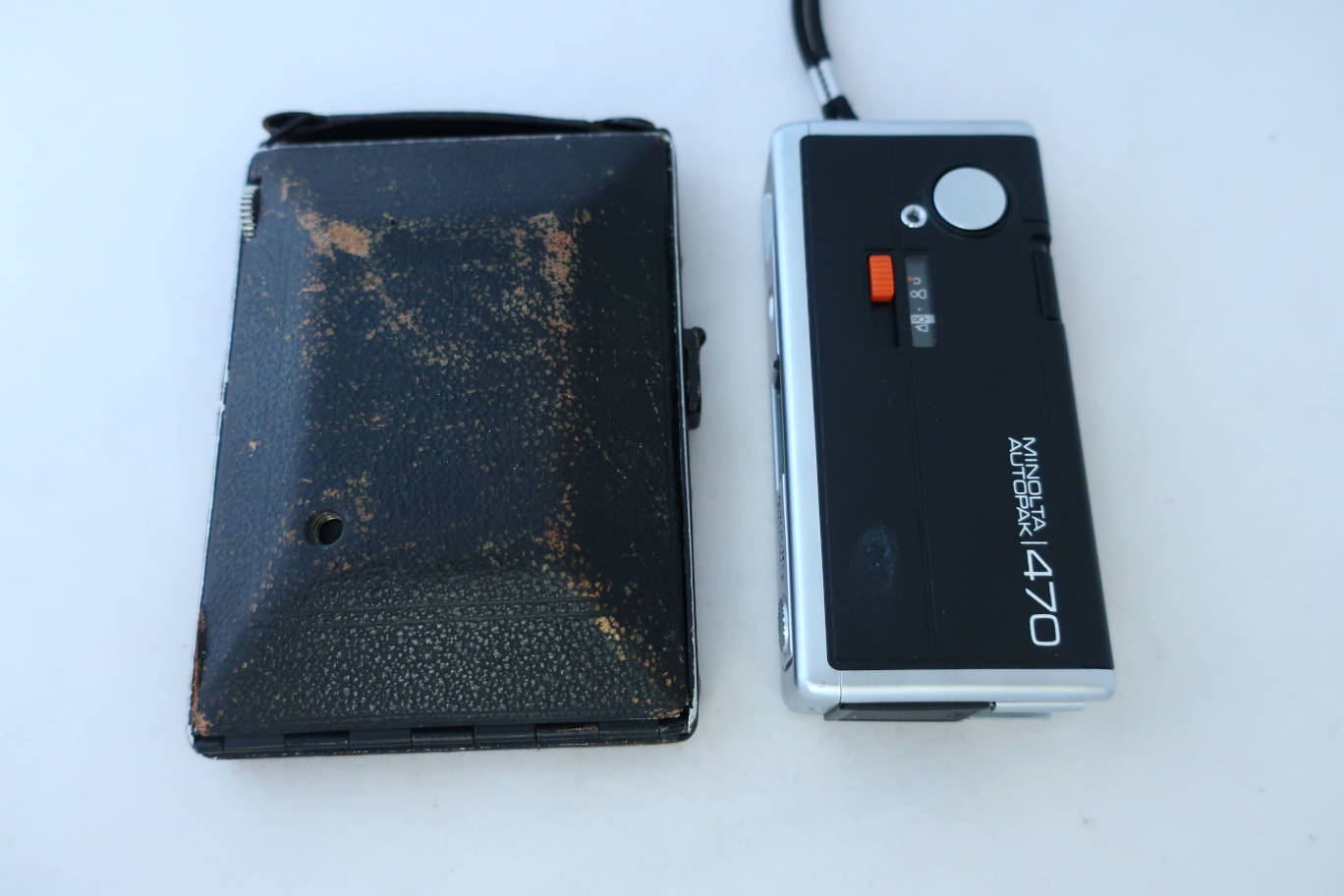
Size comparison to one of the smaller pocket cameras.
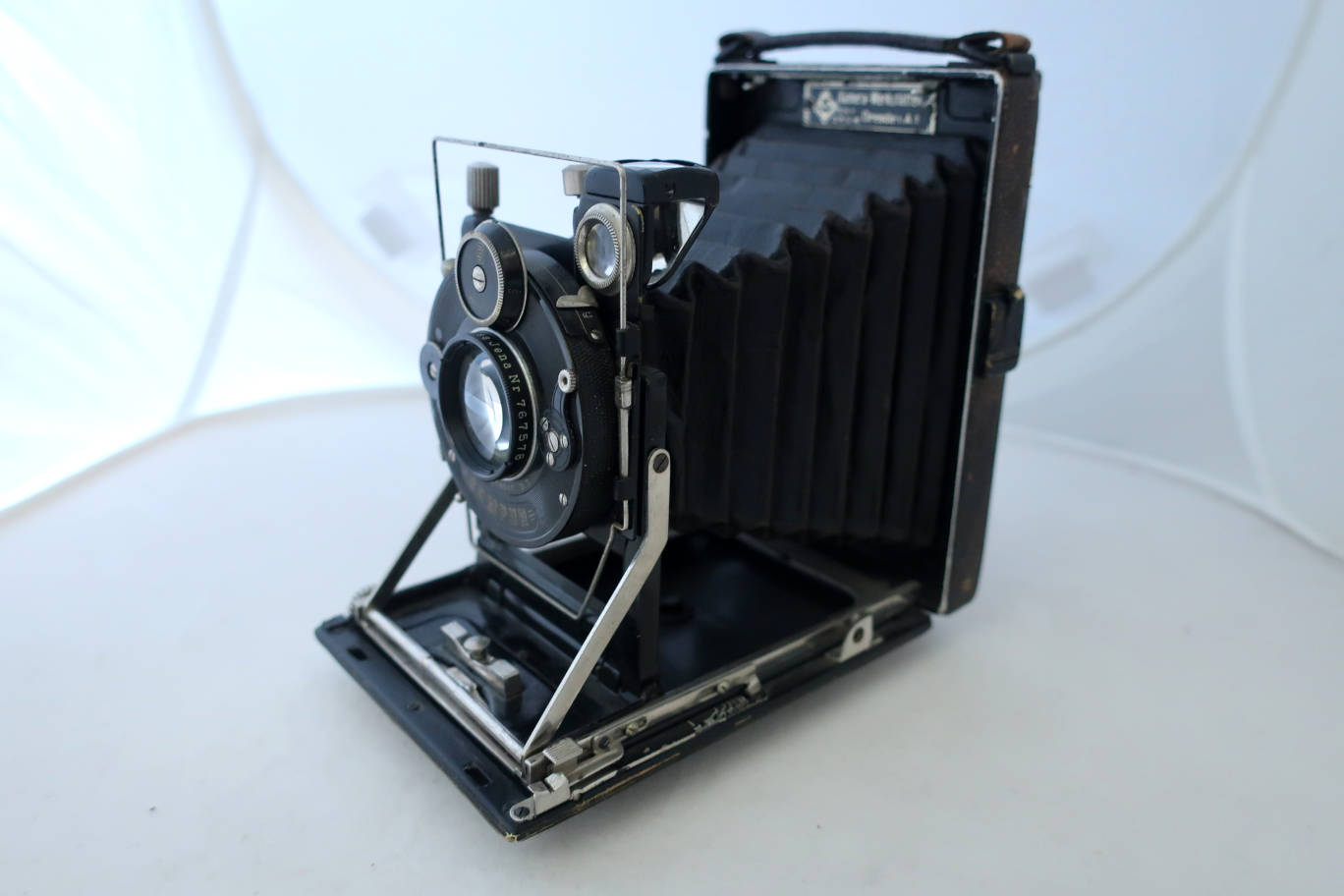
Seen from the right. Brilliant finder with spirit level, can be switched
to landscape format. Distance scale on the bed.
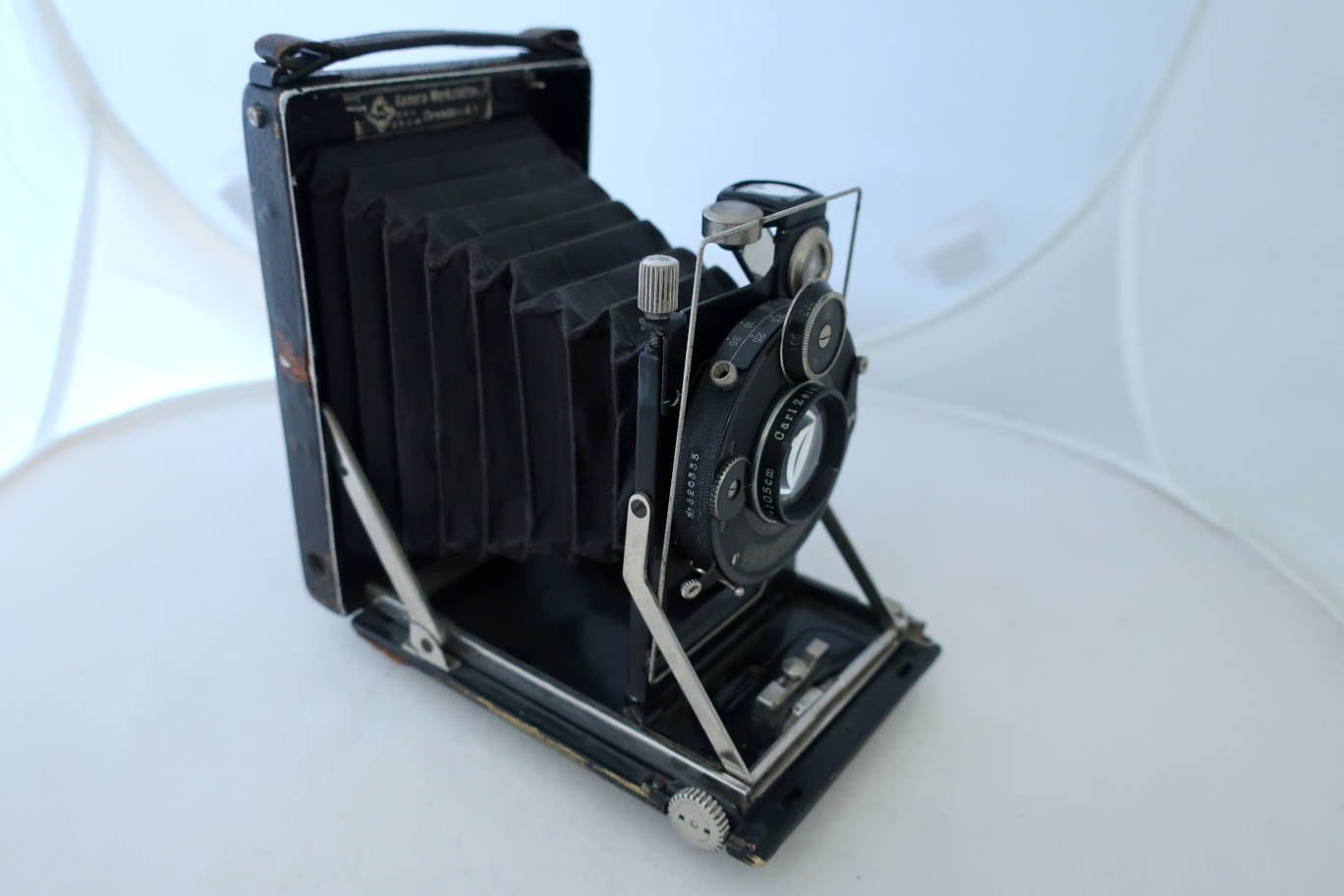
Seen from the left. The knob of the bed advance has to be pulled to
unblock and pushed to block the bed movement. Tripod socket for landscape
format on the housing.
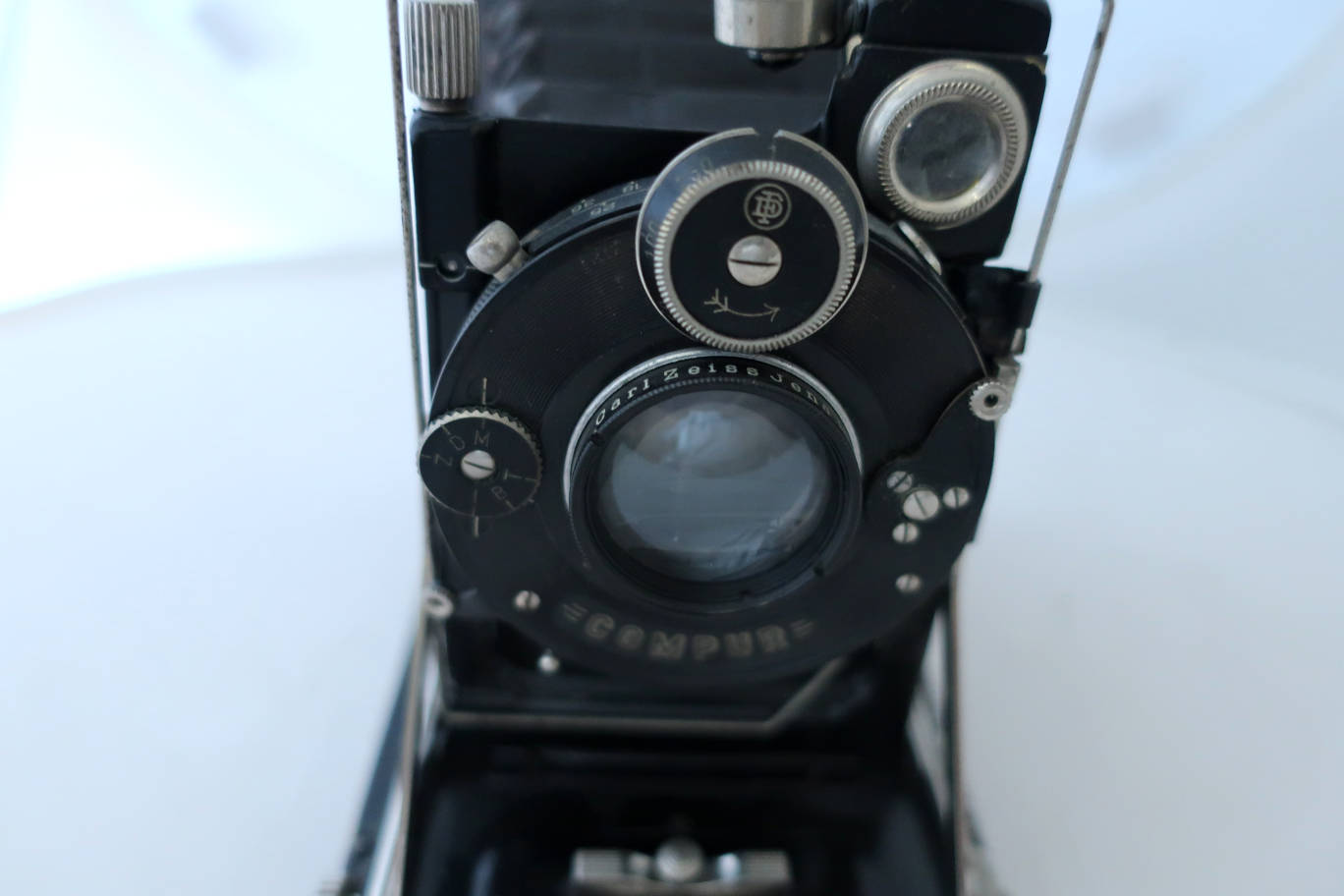
Lens and shutter.
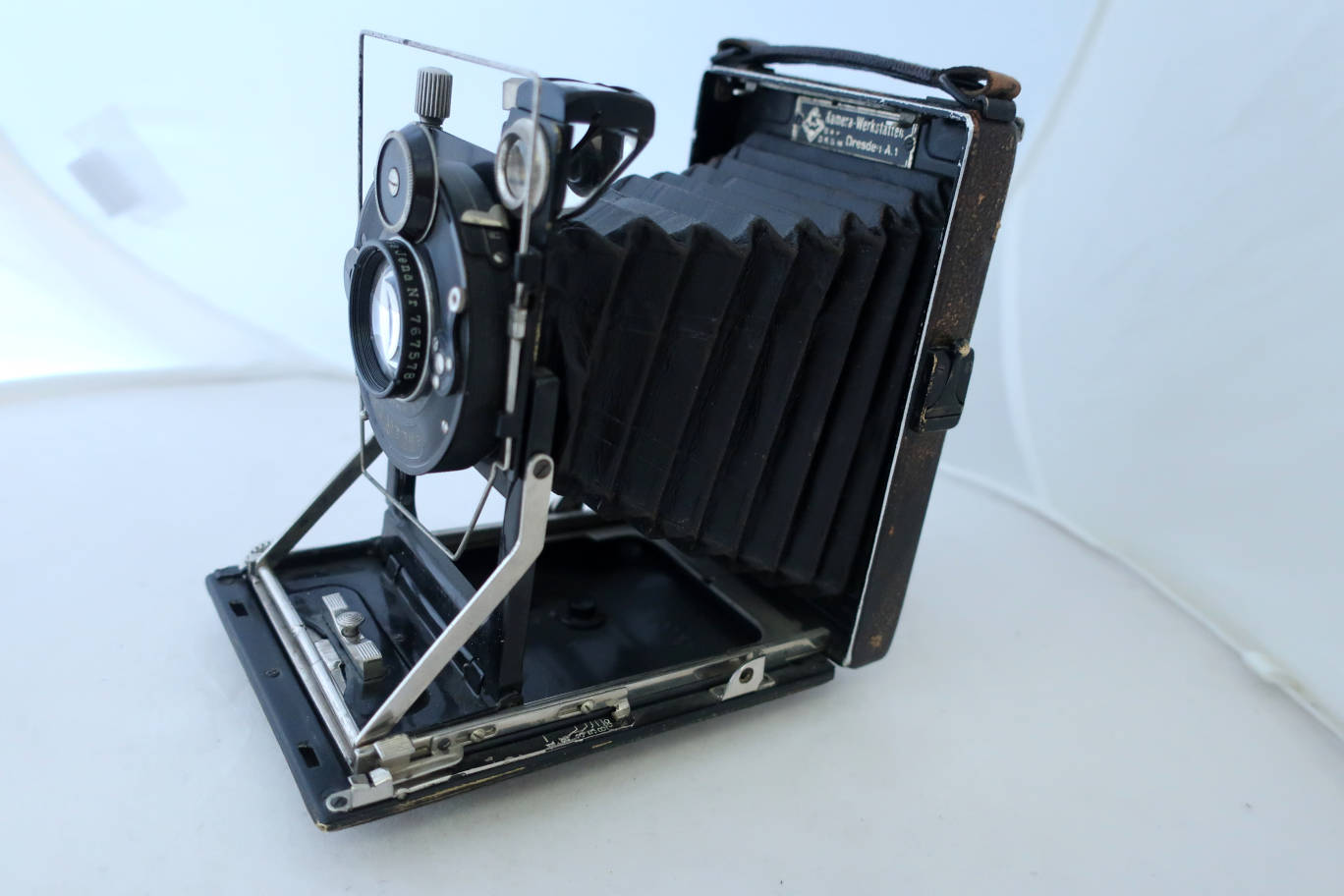
Rise/fall movements are possible, more than on other cameras, but no
shift. Risen.
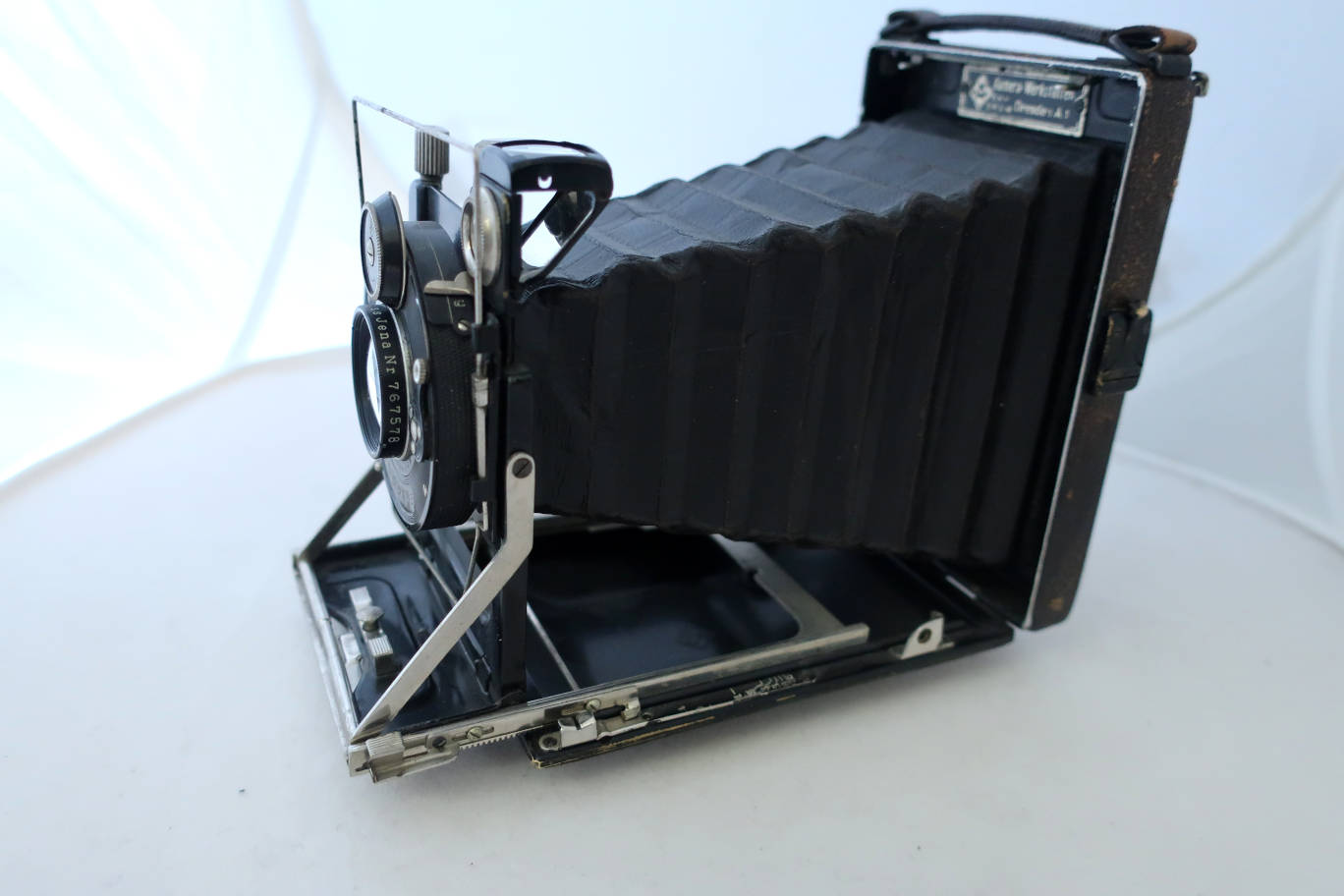
The camera has double extension. You have to press the little silver tab
near the front of the rail to unblock extension.
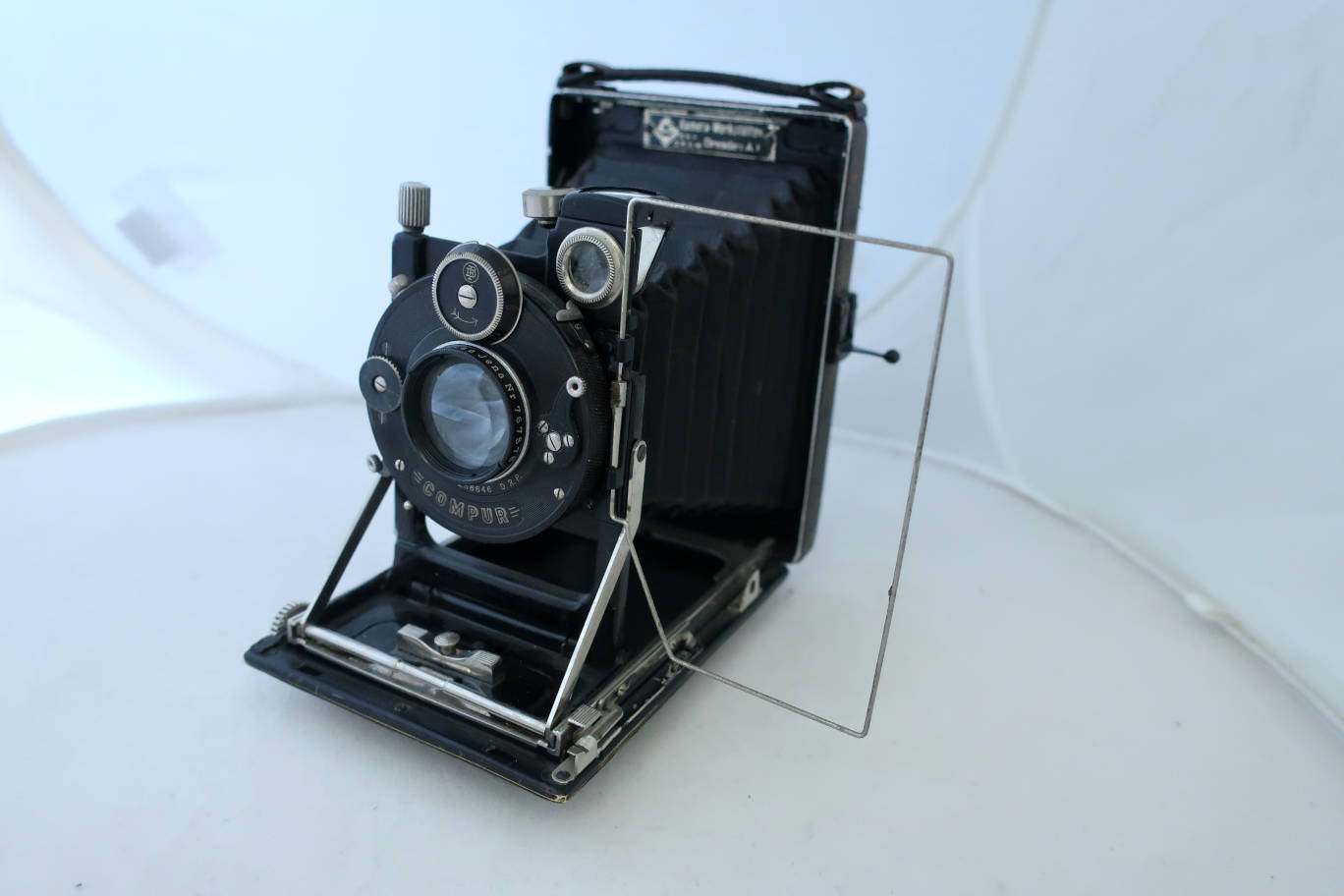
The camera has a wire frame and an aiming device, both foldable.
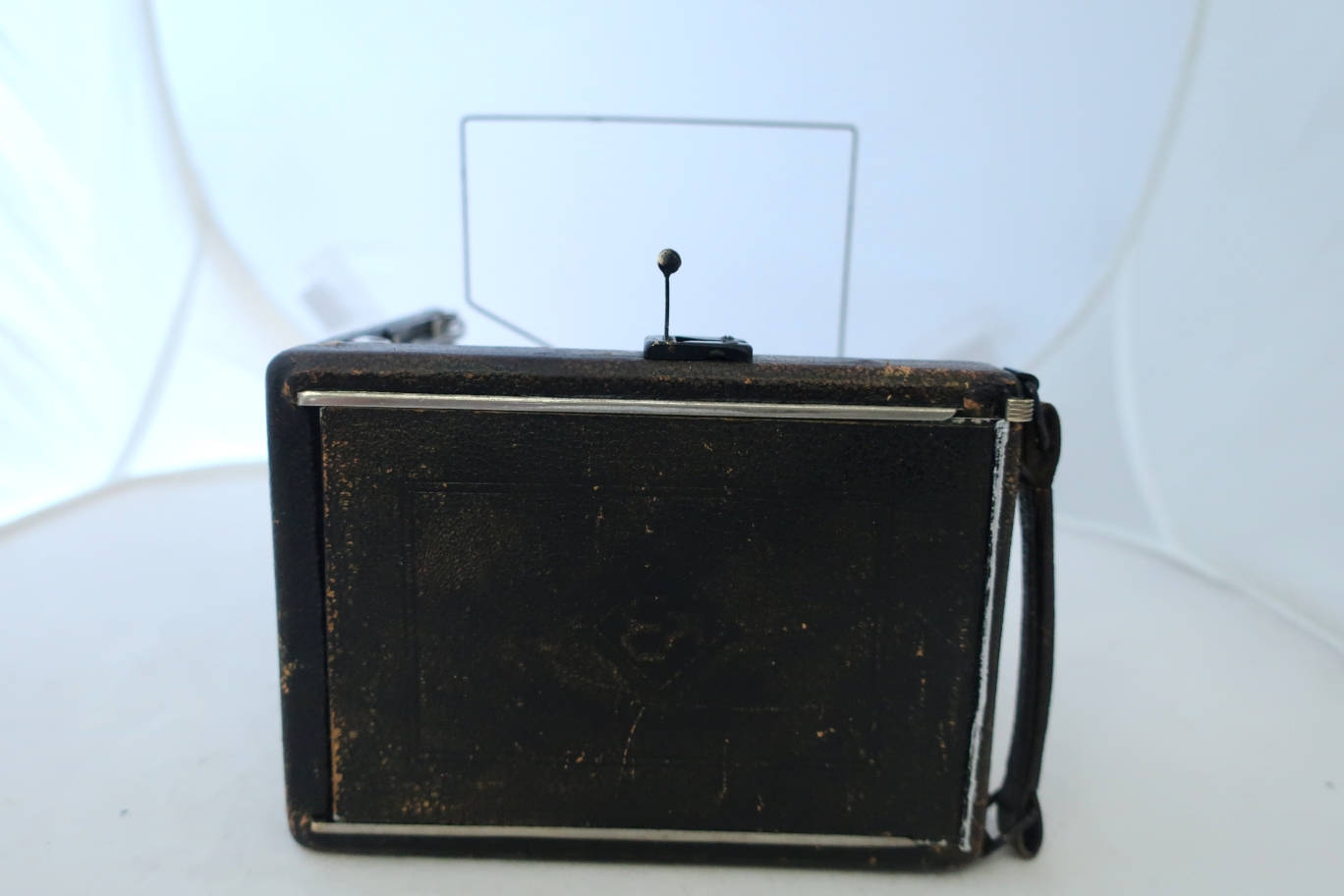
Wire frame from the back...
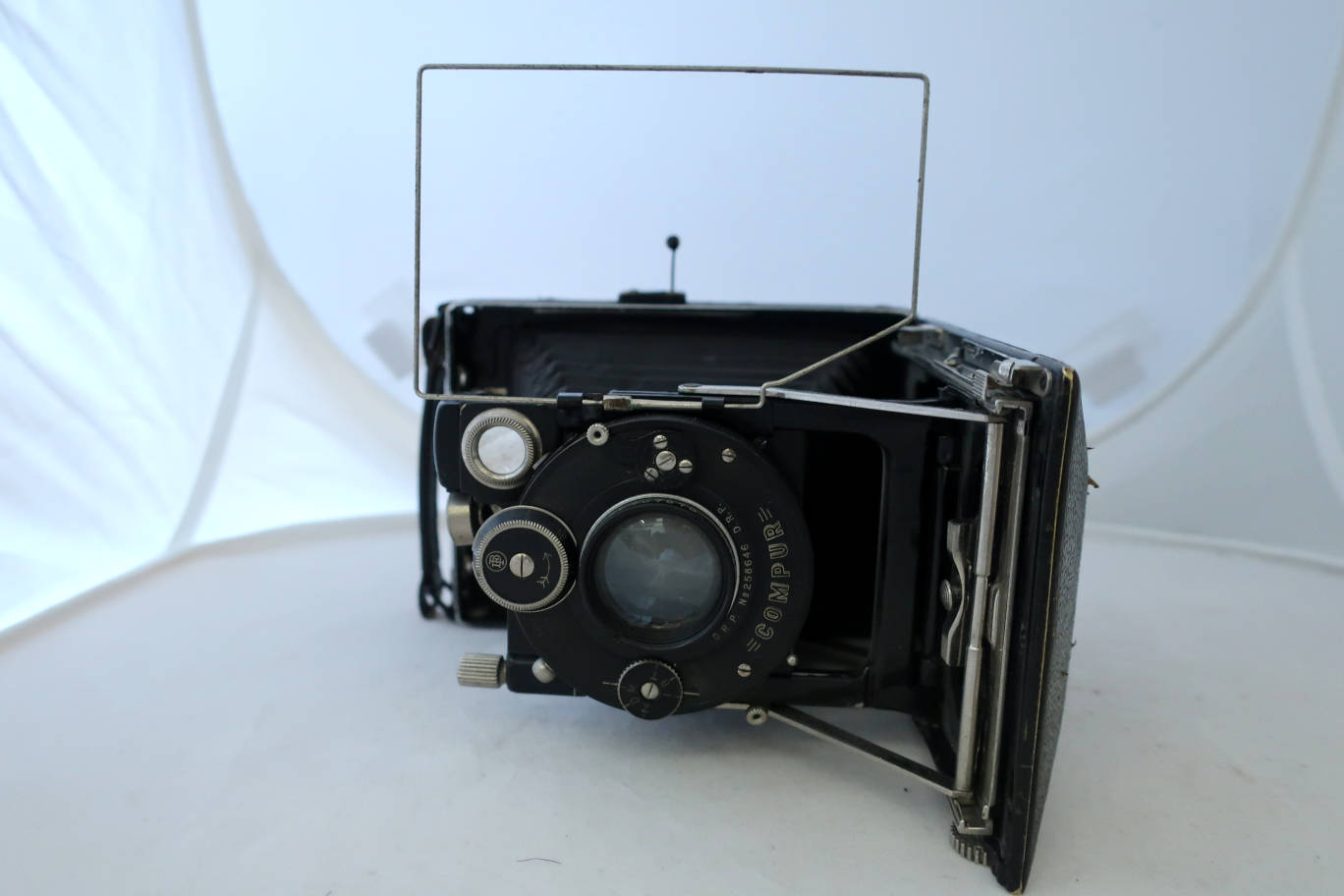
...and from the front.
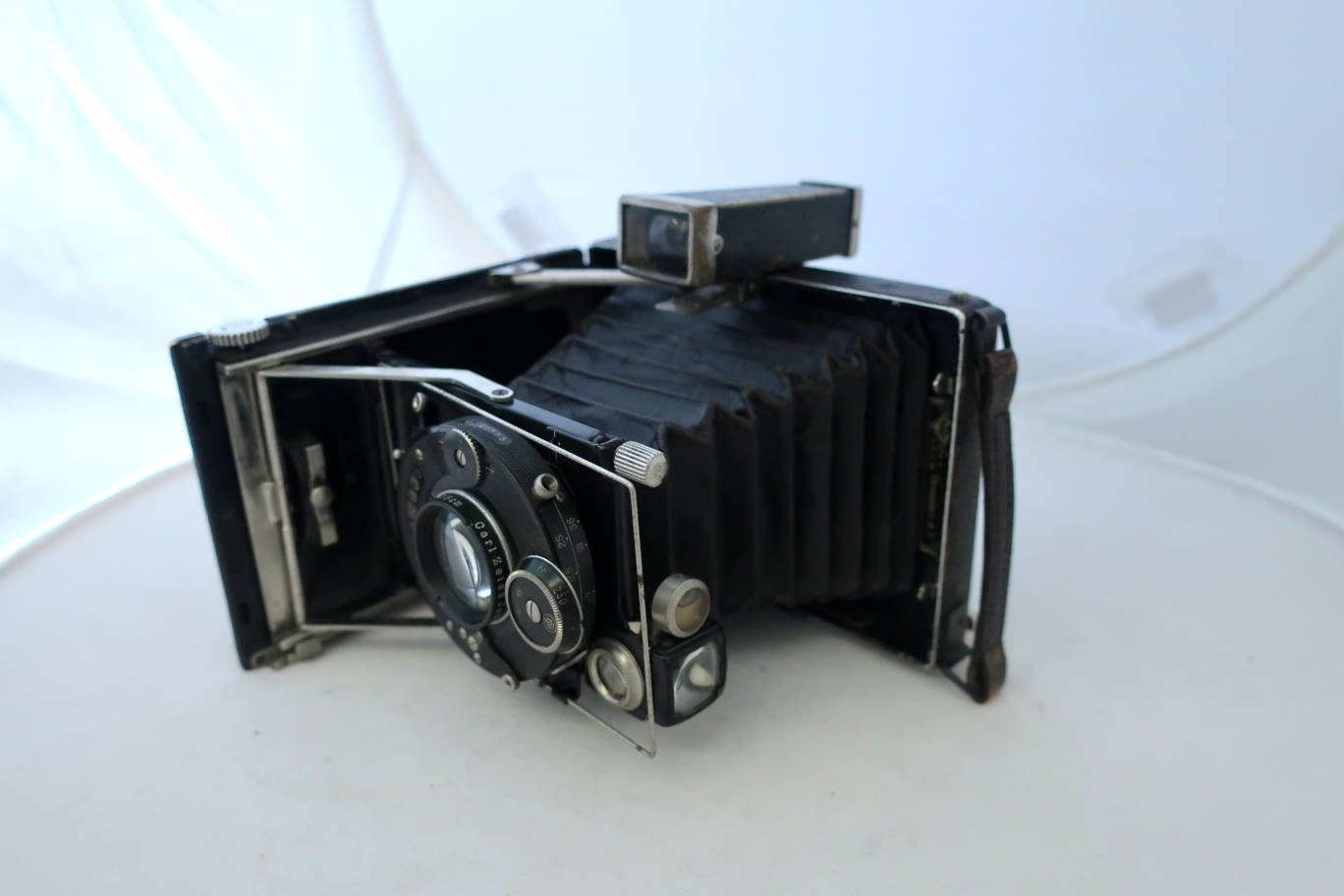
Clipsable viewer,
landscape mode.
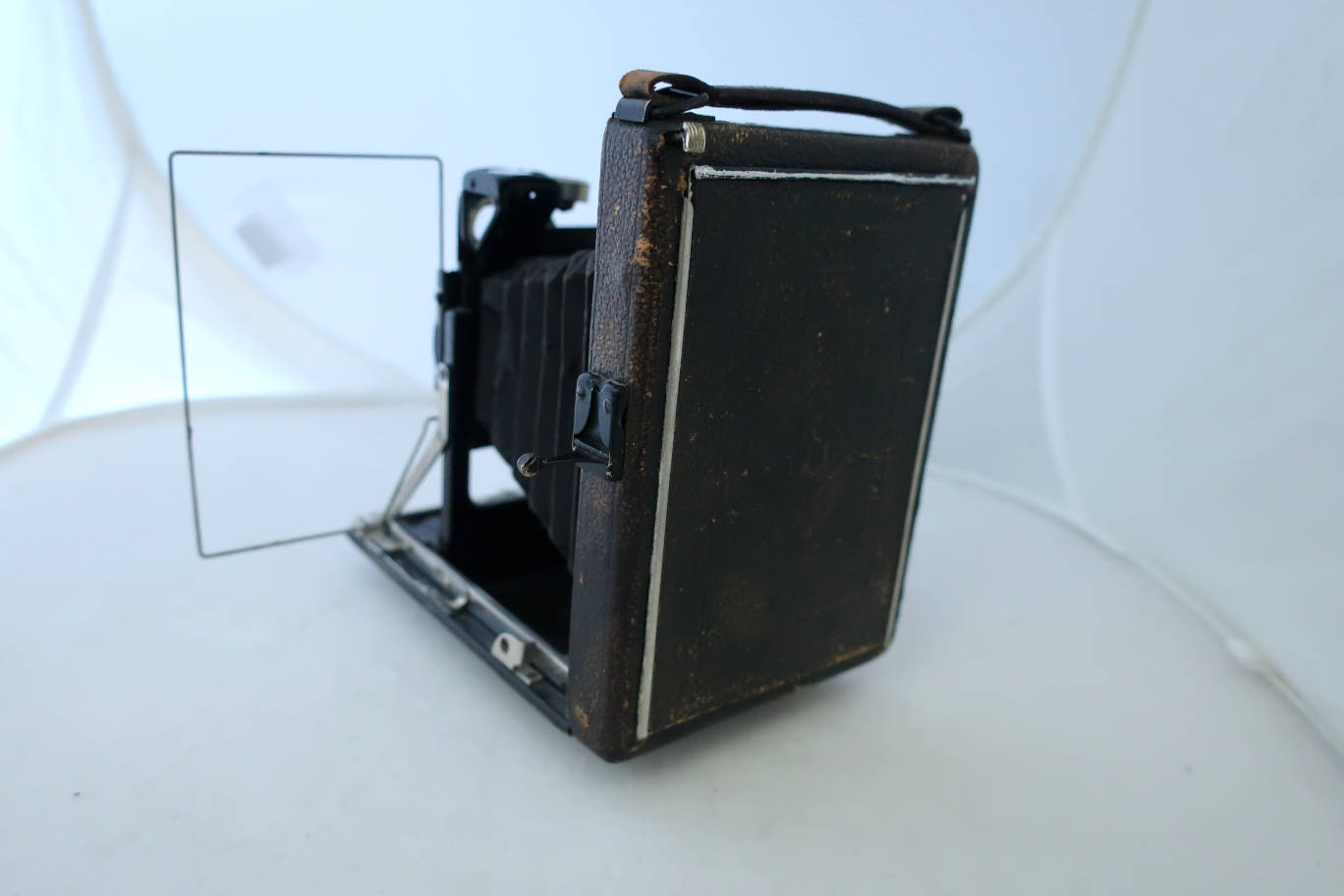
Back. There is a protection slide, no ground glass and hood
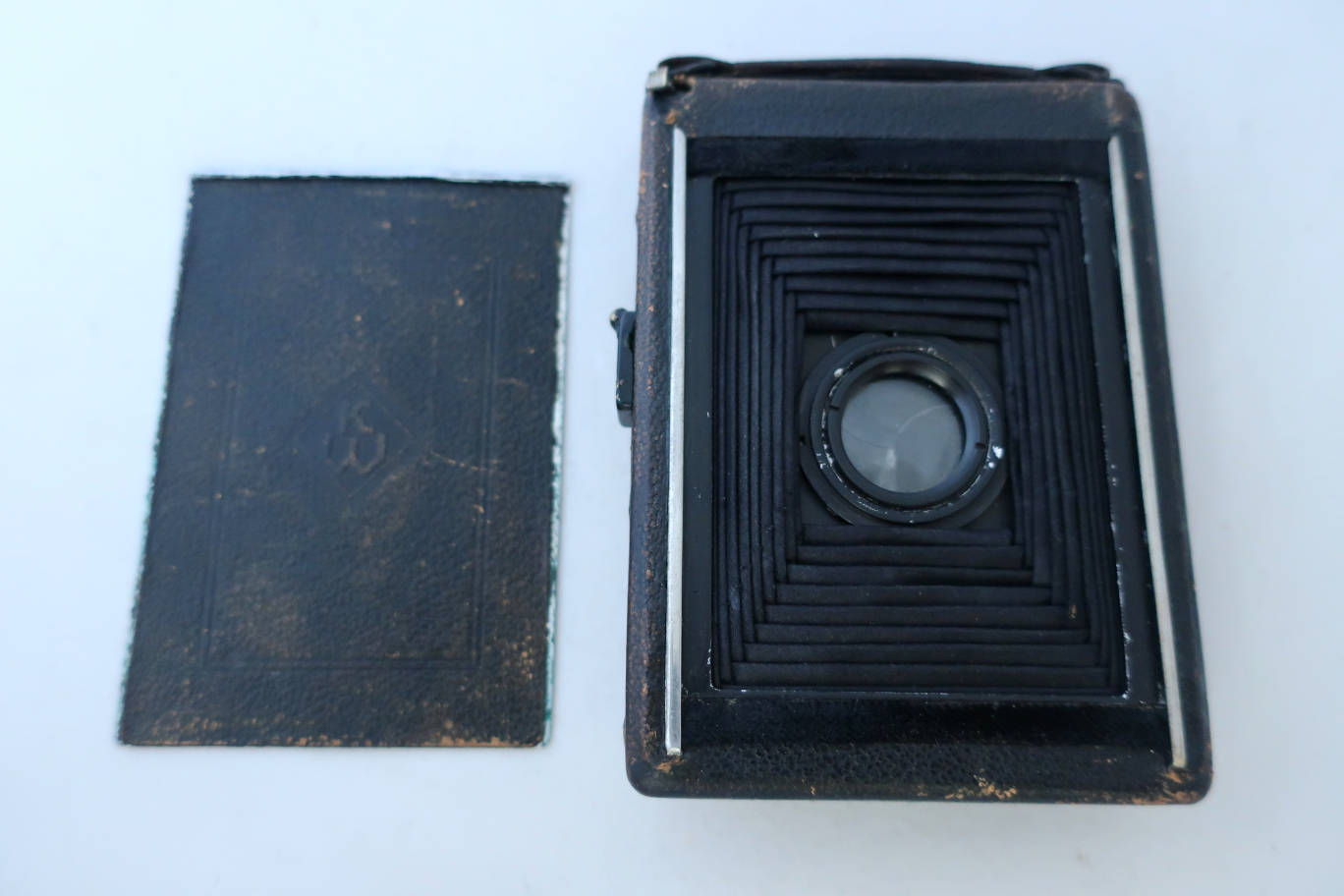
Slide deposed.
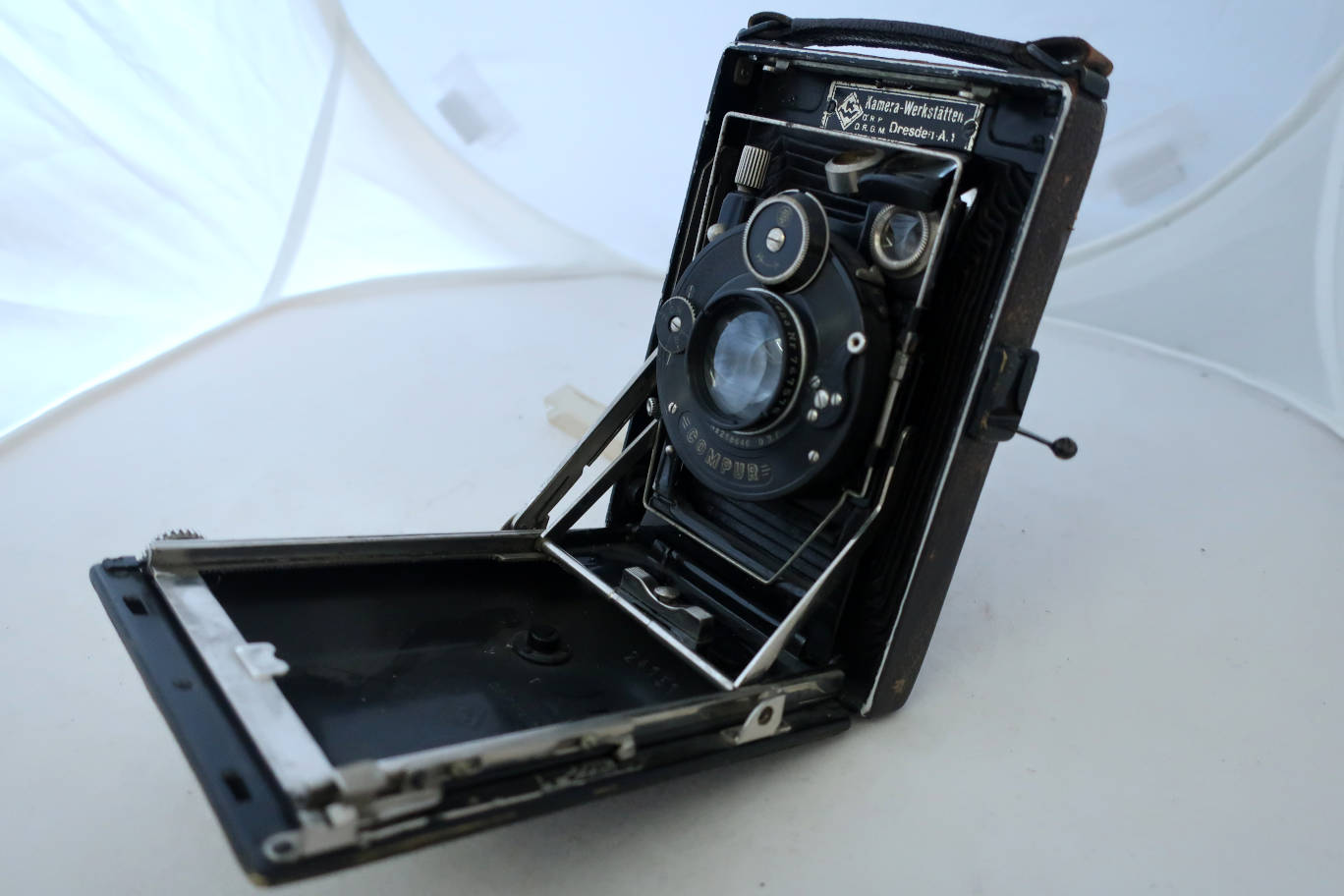
Everything folds neatly into the housing. Do not forget to push the bed
advance knob back before closing.
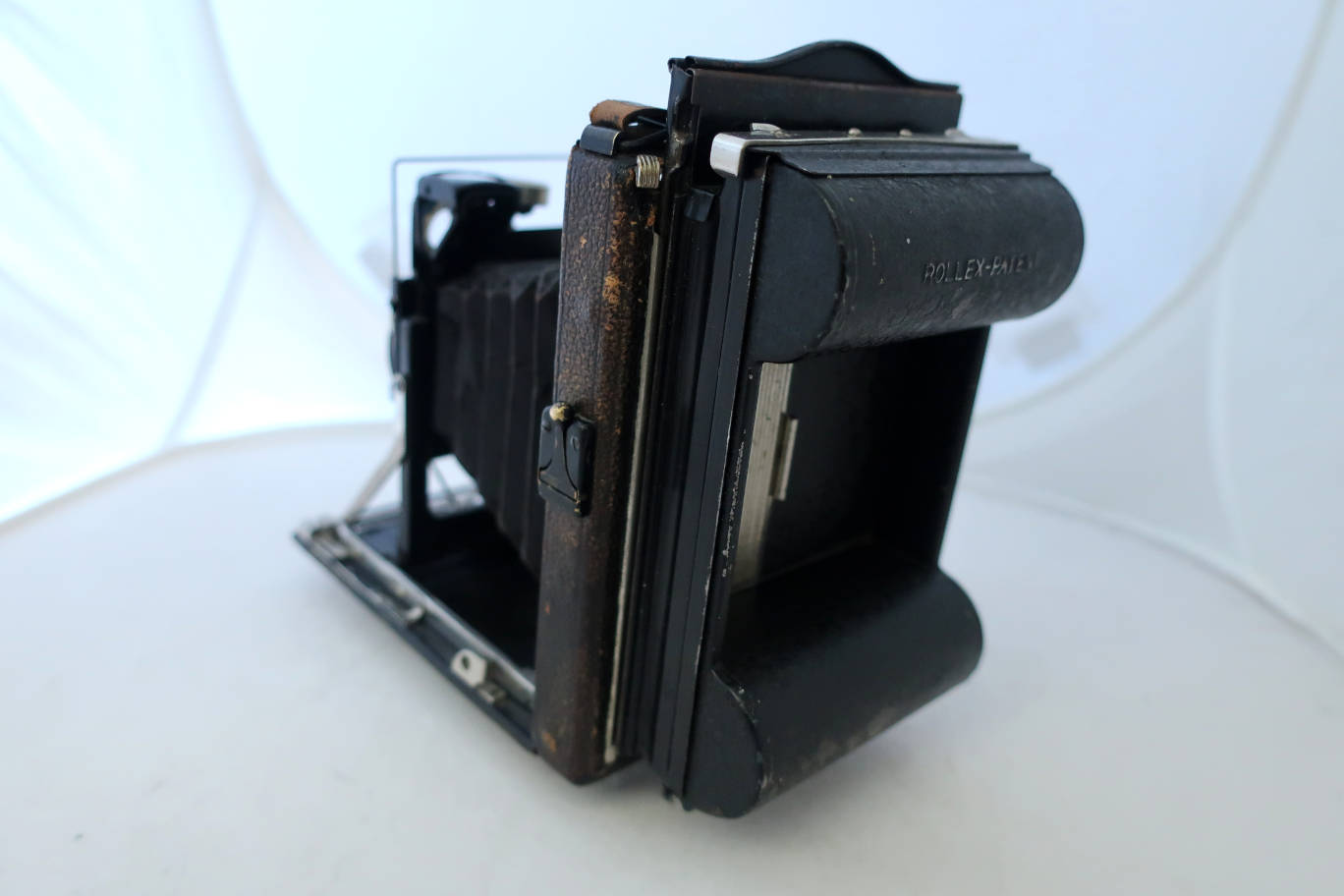
Camera with Rollex roll film back.
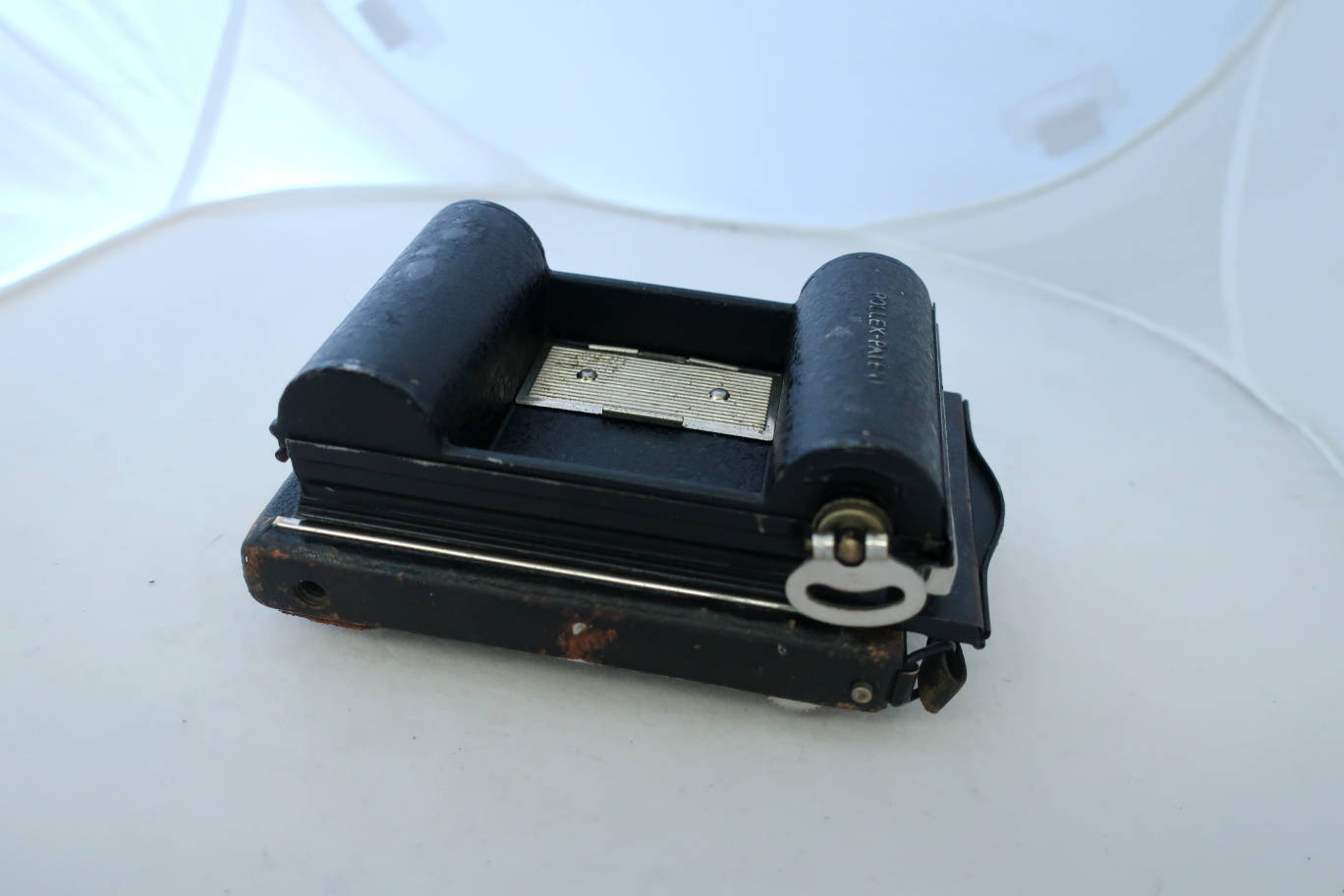
The back is bigger than the camera.
My second camera looks better, it has obviously been restored.
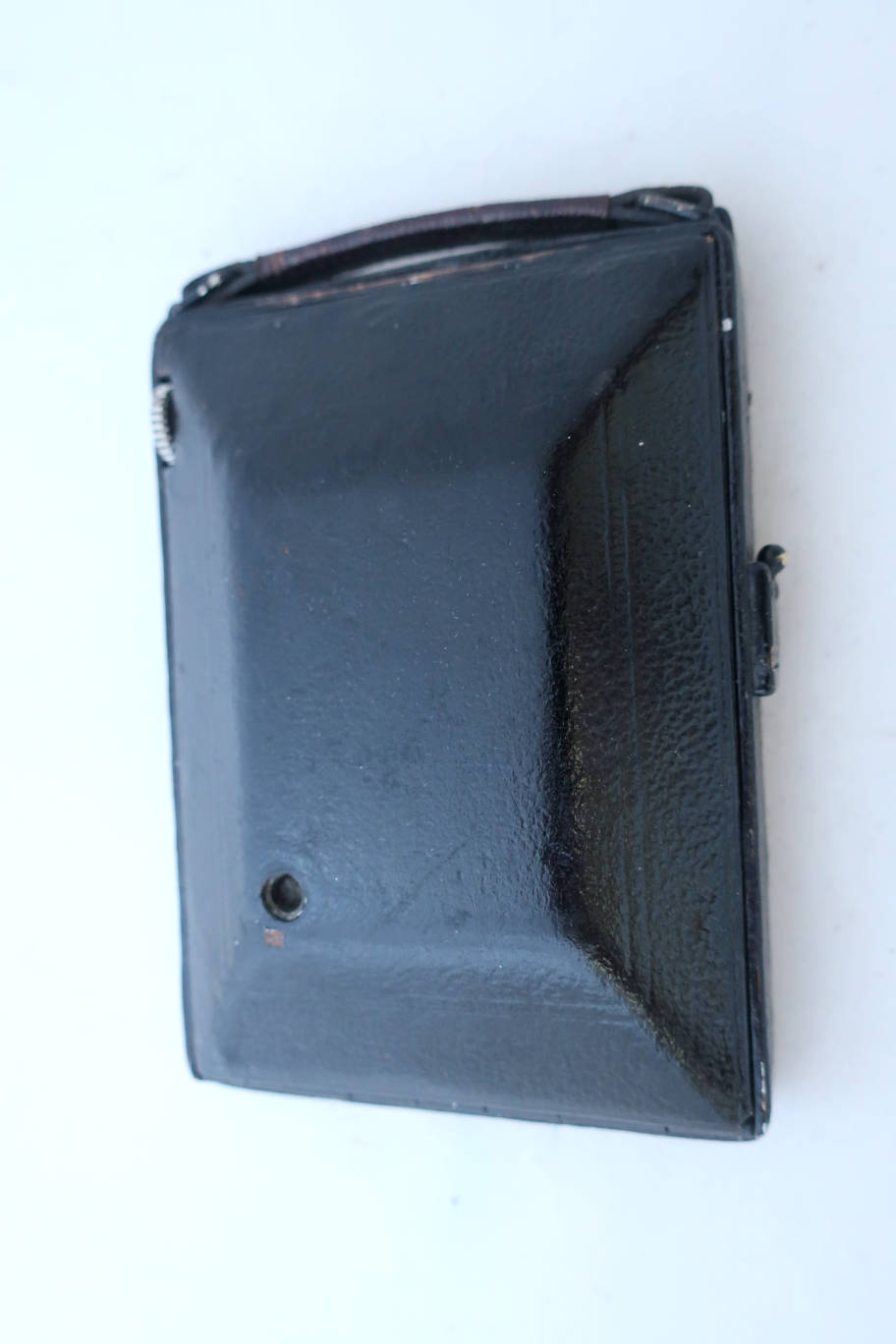
Camera folded, the leather looks very good
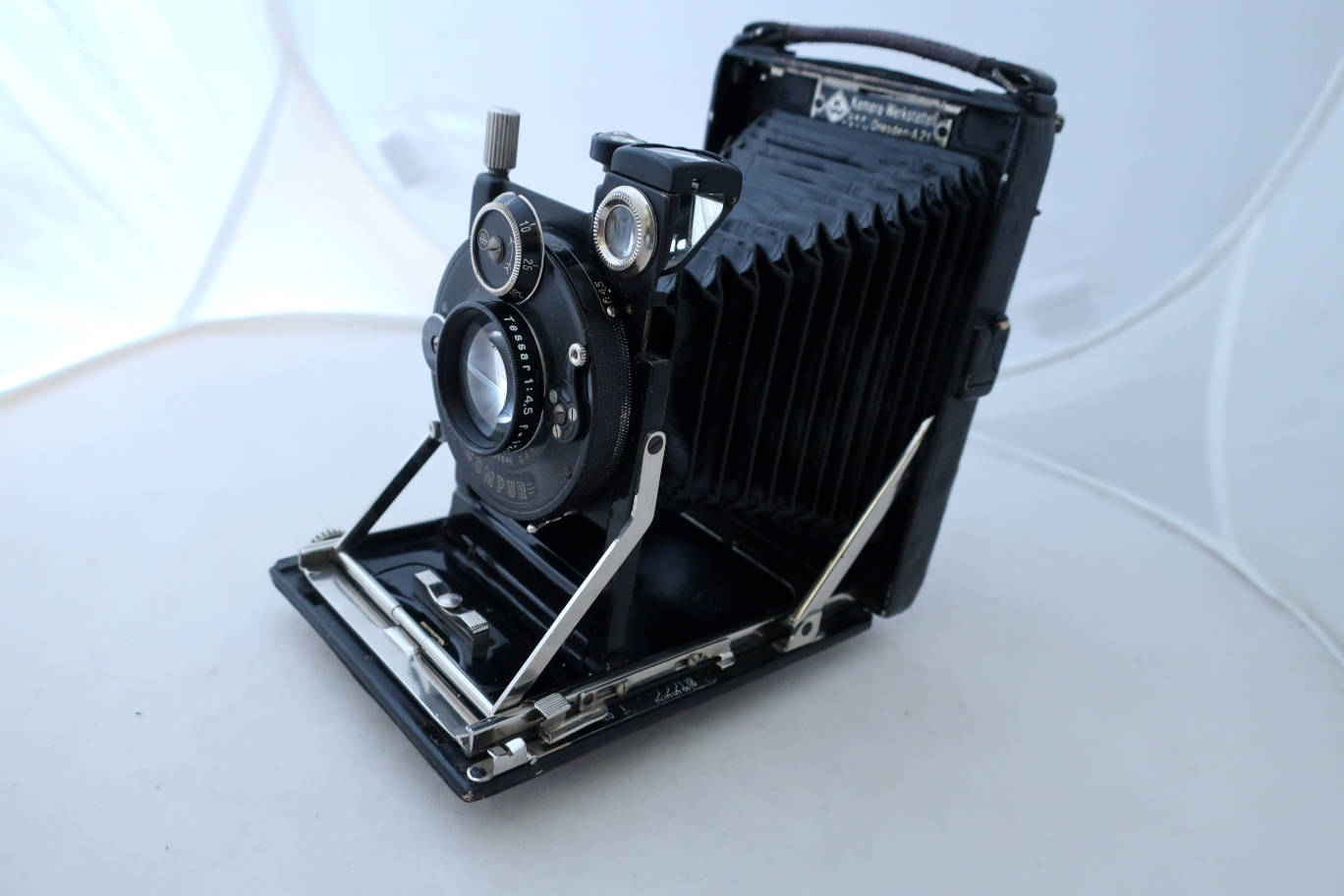
Unfolded.
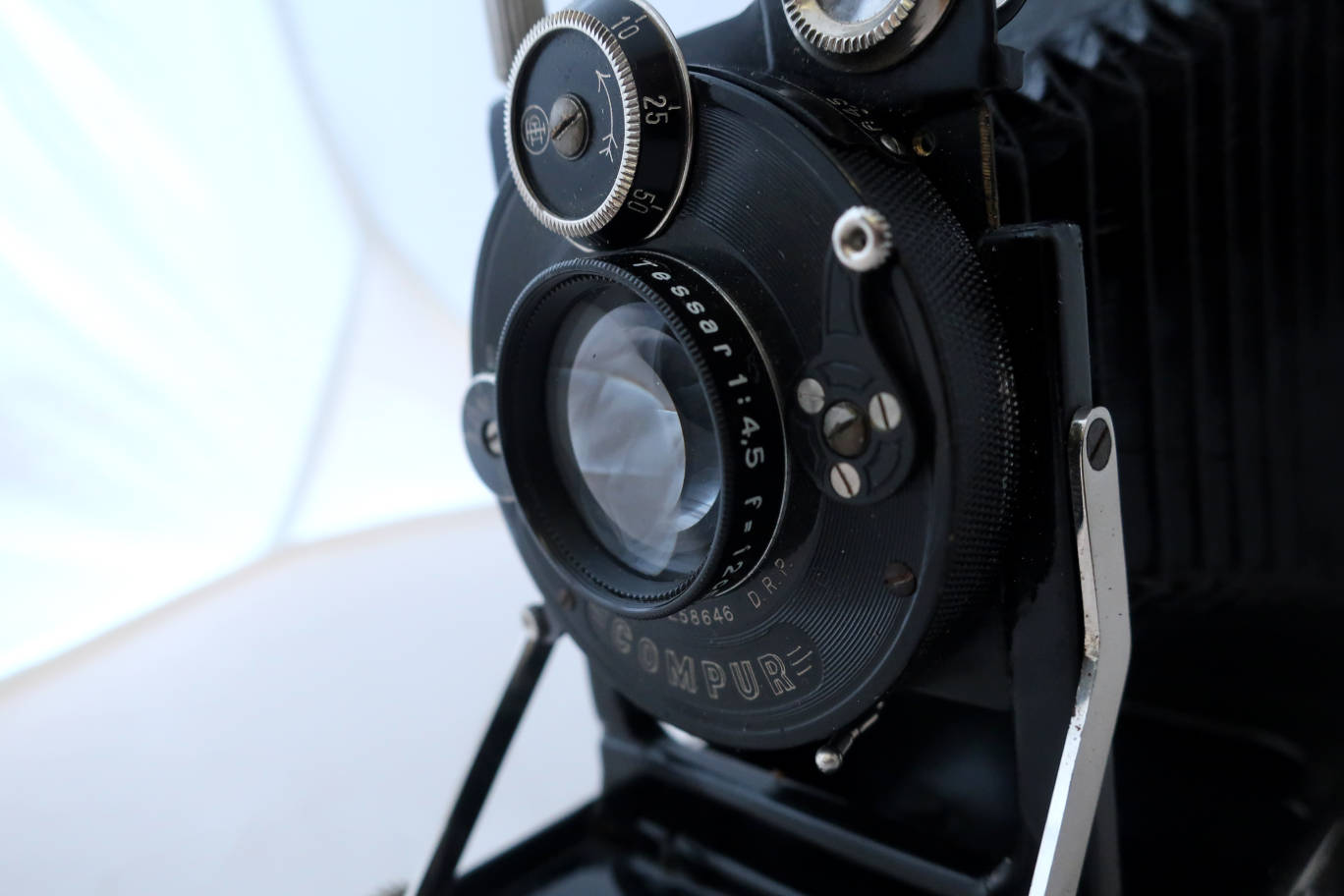
It has the rare 12cm Tessar lens.
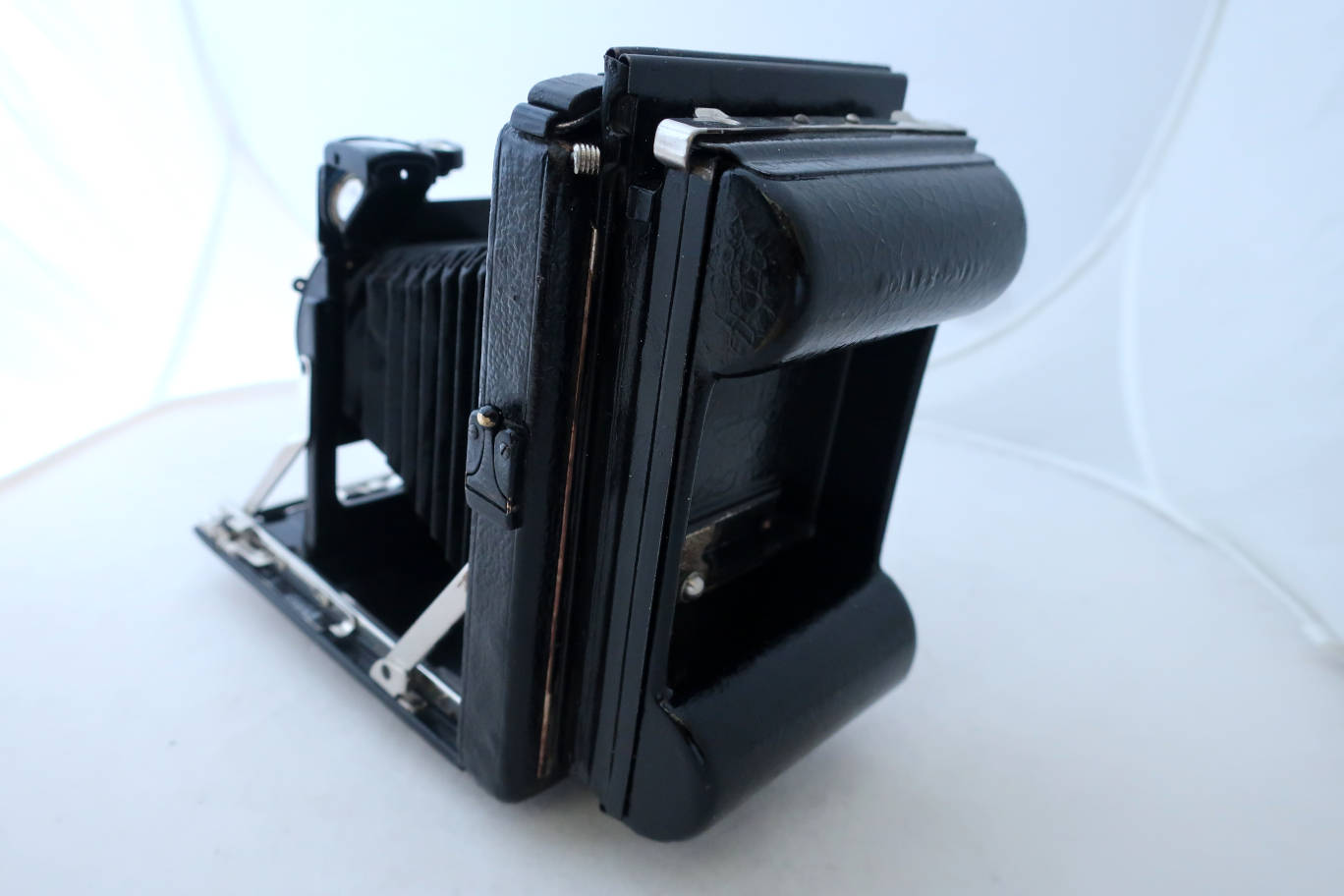
It was sold with a roll film back.
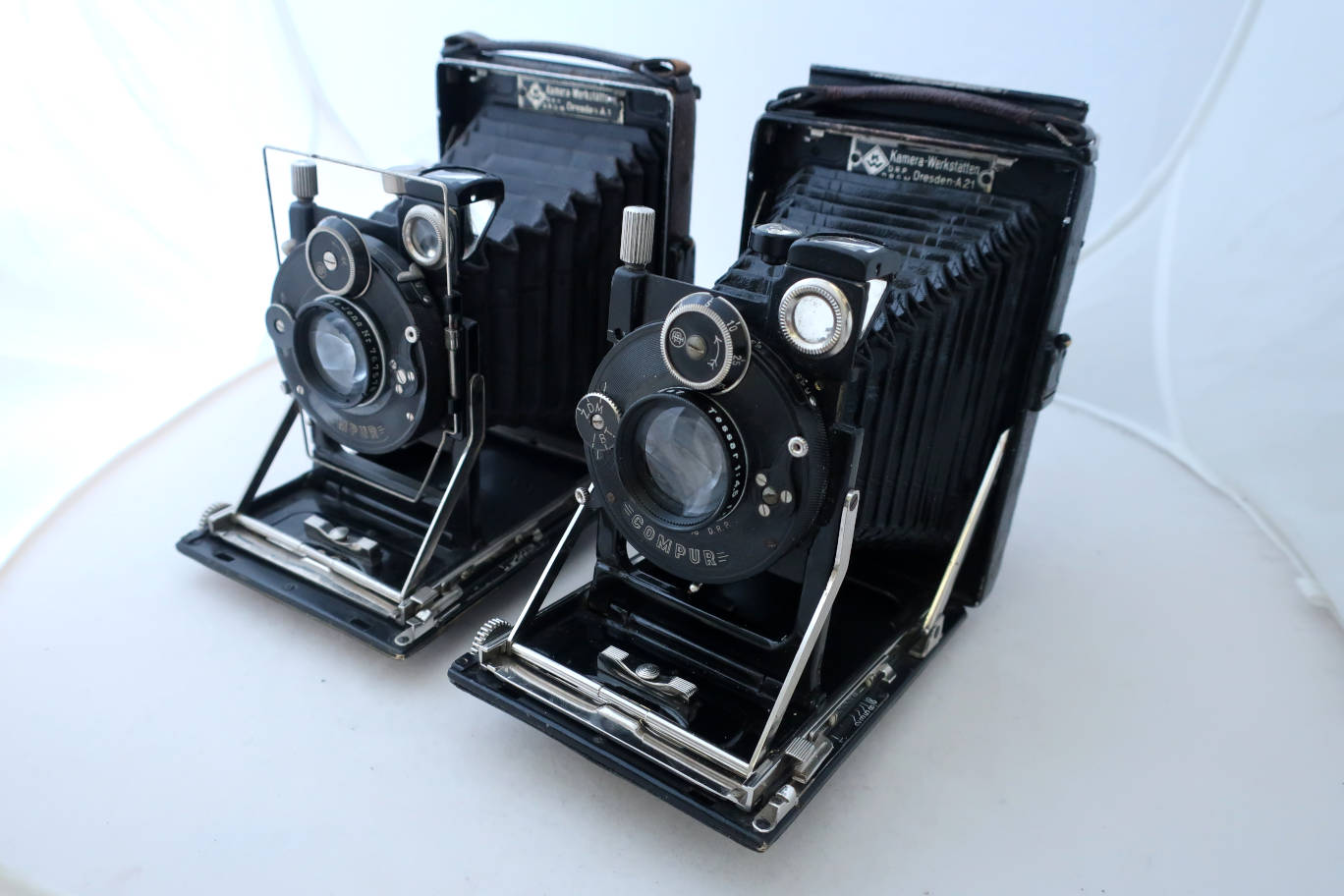
Both cameras side by side.
The
camera opens via a button on the side near the top. Lower the bed
until it clicks into place. Extend, there is an automatic stop. You
can either use the finder and the distance indications or a ground
glass to focus. Set shutter speed and aperture, cock the shutter. Put
a film holder into place, lift the dark slide and take your photo. Do
not forget to put the dark slide again. To shut the camera, push the
front standard to the end of the bed, press the hinge(s) of the bed
and it will close.
6.5x9 is no longer made on a regular basis. So you would have to build
a stock whenever it is available. Think of searching for the inch
equivalent, 2.55x3.55. Or you get
yourself a 6x9 roll film holder. Rada and Rollex made them, some are
branded Plaubel. They tend to be on the expensive side and add size to
the camera. Browse old camera part sales. But maybe an old roll film
folder would be a better choice.
These cameras are
about a century old. The lenses are uncoated and the shutters are simple.
Nevertheless they are still nice cameras. Most of these
cameras are very cheap. They are simple to use and can give a lot of fun.